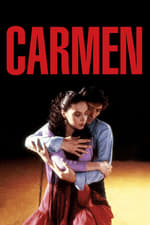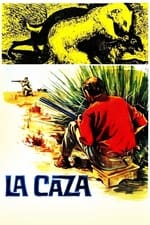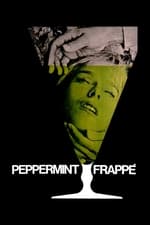Informação Pessoal
Reconhecido(a) por Realização
Créditos conhecidos 77
Sexo Masculino
Nasceu em 4 janeiro 1932
Faleceu em 10 fevereiro 2023 (91 years old)
Local de nascimento Huesca, Aragón, Spain
Nome por qual também é conhecido(a)
- 카를로스 사우라
Preenchimento de Conteúdo
100
Aí sim! Ficou ótimo!
Inicie Sessão para reportar um problema
Biografia
Carlos Saura Atarés (4 January 1932 – 10 February 2023) was a Spanish film director, photographer and writer. With Luis Buñuel and Pedro Almodóvar, he is considered to be among Spain's great filmmakers. He had a long and prolific career that spanned over half a century, and his films won many international awards.
Saura began his career in 1955 making documentary shorts. He gained international prominence when his first feature-length film premiered at Cannes Film Festival in 1960. Although he started filming as a neorealist, Saura switched to films encoded with metaphors and symbolism in order to get around the Spanish censors. In 1966, he was thrust into the international spotlight when his film The Hunt won the Silver Bear at the Berlin International Film Festival. In the following years, he forged an international reputation for his cinematic treatment of emotional and spiritual responses to repressive political conditions.
By the 1970s, Saura was the best known filmmaker working in Spain. His films employed complex narrative devices and were frequently controversial. He won Special Jury Awards for Cousin Angelica (1973) and Cría Cuervos (1975) in Cannes, and he received an Academy Award for Best Foreign Language Film nomination in 1979 for Mama Turns 100.
In the 1980s, Saura was in the spotlight for his Flamenco trilogy – Blood Wedding, Carmen and El amor brujo, in which he combined dramatic content and flamenco dance forms. His work continued to be featured in worldwide competitions and earned numerous awards. He received two nominations for Academy Awards for Best Foreign Language Film for Carmen (1983) and Tango (1998). His films are sophisticated expression of time and space fusing reality with fantasy, past with present, and memory with hallucination. In the last two decades of the 20th century, Saura concentrated on works uniting music, dance and images.
Description above from the Wikipedia article Carlos Saura, licensed under CC-BY-SA, full list of contributors on Wikipedia.
Carlos Saura Atarés (4 January 1932 – 10 February 2023) was a Spanish film director, photographer and writer. With Luis Buñuel and Pedro Almodóvar, he is considered to be among Spain's great filmmakers. He had a long and prolific career that spanned over half a century, and his films won many international awards.
Saura began his career in 1955 making documentary shorts. He gained international prominence when his first feature-length film premiered at Cannes Film Festival in 1960. Although he started filming as a neorealist, Saura switched to films encoded with metaphors and symbolism in order to get around the Spanish censors. In 1966, he was thrust into the international spotlight when his film The Hunt won the Silver Bear at the Berlin International Film Festival. In the following years, he forged an international reputation for his cinematic treatment of emotional and spiritual responses to repressive political conditions.
By the 1970s, Saura was the best known filmmaker working in Spain. His films employed complex narrative devices and were frequently controversial. He won Special Jury Awards for Cousin Angelica (1973) and Cría Cuervos (1975) in Cannes, and he received an Academy Award for Best Foreign Language Film nomination in 1979 for Mama Turns 100.
In the 1980s, Saura was in the spotlight for his Flamenco trilogy – Blood Wedding, Carmen and El amor brujo, in which he combined dramatic content and flamenco dance forms. His work continued to be featured in worldwide competitions and earned numerous awards. He received two nominations for Academy Awards for Best Foreign Language Film for Carmen (1983) and Tango (1998). His films are sophisticated expression of time and space fusing reality with fantasy, past with present, and memory with hallucination. In the last two decades of the 20th century, Saura concentrated on works uniting music, dance and images.
Description above from the Wikipedia article Carlos Saura, licensed under CC-BY-SA, full list of contributors on Wikipedia.
Reconhecido(a) por
Realização
|
|||||||||
|
|||||||||
|
|||||||||
|
|||||||||
|
|||||||||
|
|||||||||
|
|||||||||
|
|||||||||
|
|||||||||
|
|||||||||
|
|||||||||
|
|||||||||
|
|||||||||
|
|||||||||
|
|||||||||
|
|||||||||
|
|||||||||
|
|||||||||
|
|||||||||
|
|||||||||
|
|||||||||
|
|||||||||
|
|||||||||
|
|||||||||
|
|||||||||
|
|||||||||
|
|||||||||
|
|||||||||
|
|||||||||
|
|||||||||
|
|||||||||
|
|||||||||
|
|||||||||
|
|||||||||
|
|||||||||
|
|||||||||
|
|||||||||
|
|||||||||
|
|||||||||
|
|||||||||
|
|||||||||
|
|||||||||
|
|||||||||
|
|||||||||
|
Argumento
|
||||||
|
||||||
|
||||||
|
||||||
|
||||||
|
||||||
|
||||||
|
||||||
|
||||||
|
||||||
|
||||||
|
||||||
|
||||||
|
||||||
|
||||||
|
||||||
|
||||||
|
||||||
|
||||||
|
||||||
|
||||||
|
||||||
|
||||||
|
||||||
|
||||||
|
||||||
|
||||||
|
||||||
|
||||||
|
||||||
|
||||||
|
||||||
|
||||||
|
||||||
|
||||||
|
||||||
|
Atuação
Arte
|
|||
|
Equipa Técnica
|
|||
|
Câmara
|
Edição
|








